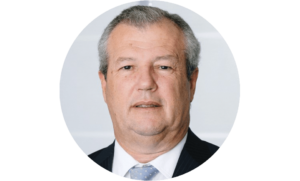Francisco Calheiros, President of the Tourism Confederation of Portugal
It is still too early to know the real impact of the SARS_CoV_2 pandemic and its COVID-19 disease in the country and the world, as it is still there and at different speeds all over the planet. But present is no doubt that costs will be high and some of the damage will be irreversible. Starting with Tourism, whose main indicators in Portugal point to drop above 65 per cent. The most dynamic and competitive economic activity and with the highest levels of growth in our country is going through an unprecedented crisis, weakening companies and destroying jobs. In addition to this scenario, there’s also reputational damage in Portugal’s performance in the third wave of the pandemic, as regards the image of the country as a tourist destination. Last but not least, we must not forget that the consequences of the fall in tourism affect many other activities such as air travel or airport infrastructure.
The future of Tourism therefore represents a huge challenge and at the same time a responsibility that must be accepted by all relevant agents: leaders, decision-makers, associations, professionals in the sector and citizens. The efforts towards a quick but sustainable recovery will have to be collective. There are positive signs such as the vaccine, developed in record time even with many deficiencies in its distribution, or the green digital certificate allowing those who have already been vaccinated or have recovered from COVID-19 to move with less restrictions. On the part of the Government, some important measures were put in place, such as the extensions to the “Apoio à Retoma Progressiva“, the extension of the simplified layoff, the simplified support to micro-enterprises and the extension of programs such as the “Apoiar Rendas“ and “Apoiar + Simples”.
Unfortunately, a strategic vision for the future of the activity is lacking. There is a lack of a Portuguese Tourism Recovery Plan to be included in the Recovery and Resilience Plan (PRR) and in conjunction with other European instruments to support companies. It is not acceptable that the most dynamic, competitive and wealth-generating and employment-generating activity for the national economy was excluded from the Government’s strategic options for the coming years.
We are well aware of the fact that tourism entrepreneurs, accustomed as they are to face adversities, are mobilised to win this battle more. But more than 12 uninterrupted months of almost total absence of income resulting from an unthinkable drop in demand had profound consequences, requiring Governments, both the current and the next, to have a firm stance in the defence of the activity that represents more than 14% of the GDP and direct jobs for around 450 thousand people if we take into account only the productive activities of accommodation, restaurants and travel and tourism agencies.
Tourism has the right conditions to regain its rightful place in the national economy and the country’s development. Entrepreneurs and workers are ready and have the firm resolve to win this battle. Let there be political will on our side. We will always be on the side of Portugal.







